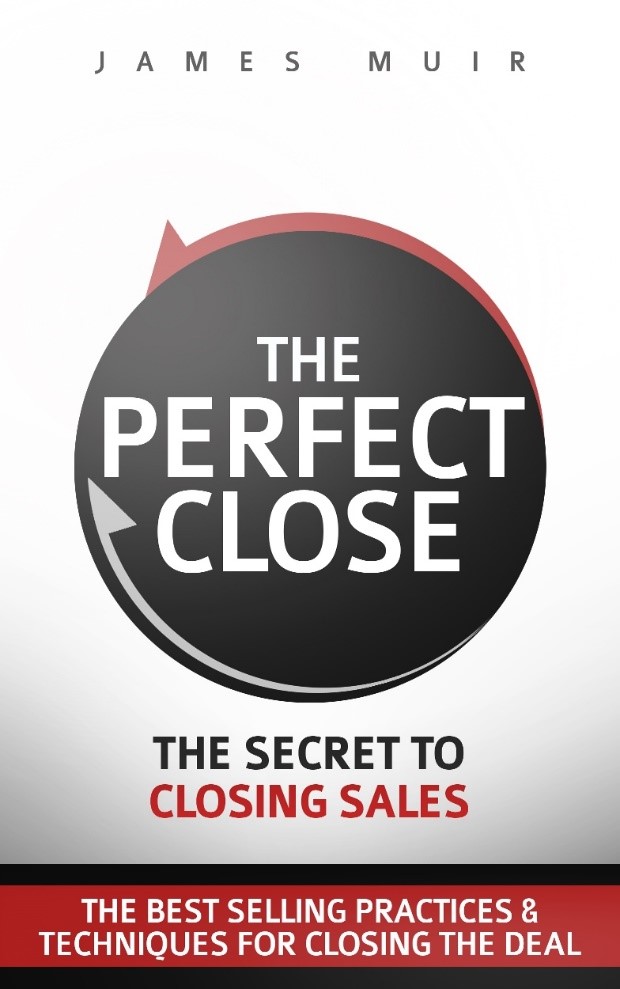I don’t write a lot of book reviews for sales or marketing books. This Fall, however, there are a number that are really noteworthy, so I’ll be sharing brief reviews of them.
I tend not be a great reviewer, because to do a review, I actually dive deep into the book. Inevitably, I find things that I question, things the author may have handled better, things I think are dead wrong. For me, it’s useful, because I’m learning. Sometimes, though, I wonder if the authors think it’s useful, inevitably I send notes, ideas, suggestions, “Can you change this or add that……” Usually, it’s not helpful, publishers have long locked up the books, not allowing for changes (which is a great argument for self-publication.)
James Muir’s, The Perfect Close, is just one of those books you are forced to sink your teeth into. James is a close friend, some time ago he gave me a galley copy of the book. While he didn’t see my initial reaction, when I first opened it and read the title, The Perfect Close, I rolled my eyes, thinking, “here’s another book on closing techniques and gimmicks, just what sales people need!”
Instead, I was delighted by a meaty book that took me through all the thinking, planning, strategy, and preparation, necessary for the sales professional to maximize the impact on the customer. It’s preparation critical to the sales person and customer aligning themselves and moving through the process, helping both achieve their goals.
He spends a lot of time looking at how the sales person should “design” a sales call or meeting, in order for real progress in the buying journey. (There is so much power to the idea of designing meetings to produce results.)
As you read, you learn the perfect close starts with mindset (Chapter 3, Adopting The Right Mindset, is my favorite in the book.) As you continue your journey through the book, you learn that technique is not that important (A blessing for me, I keep forgetting the 11, 15, 17 or whatever number some guru has come up with to close.).
James helps you learn how to think strategize, plan, execute, engage, and collaborate with your customers. He helps you learn that the actions we enable our customers to take, the steps and progress they make, are the most important and relevant actions in the whole process.
While he may not have intended the book to be so, I discovered it was less about The Perfect Close, but more about Perfecting Success.
If you aren’t looking for “answers,” and technique. If you want to challenge some of your current ideas about sales, selling, and success, be sure to buy and devour The Perfect Close.
Take your time reading it, get deep, mark it up, have your disagreements, and learn.

Dave,
So glad you shared this. I am encouraged to hear that James rejects the tricks and techniques that so many “experts” peddle. I’ve always been with you on the comment “I keep forgetting the 11, 15, 17 or whatever number some guru has come up with to close”. I’ve always found that stuff so cheesy, manipulative and easily seen through by any reasonably intelligent buyer. Conversely, it appears the book is about the professional basics of selling…refreshing! I’ll have to pick up a copy.
Best,
Don